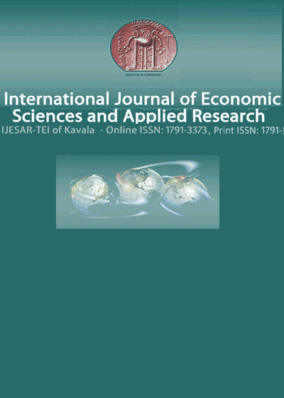Responsiveness of trade flows to changes in exchange rate and relative prices : evidence from Nigeria
Part of : International journal of economic sciences and applied research ; Vol.3, No.2, 2010, pages 123-141
Issue:
Pages:
123-141
Abstract:
This paper examines the long-run and short-run impacts of exchange rate and price changes on trade flows in Nigeria using exports and imports functions. The bounds testing (ARDL) approach to cointegration is applied on a quarterly data from 1980Q1 to 2007Q4. The results indicate that in both the short-run and long-run Nigeria’s trade flows are chiefly influenced by income- both domestic and foreign-, relative prices, nominal effective exchange rates and the stoc k of external reserves. The results also reveal that in the long-run, devaluation is more effective than relative prices in altering imports demand at both baseline and augmented models. The reverse is, however, the case for exports demand. Furthermore, the sum of the estima ted price elasticities of export and import demand in Nigeria exceeds unity indicating that the Mars hai1-Lerner (ML) condition holds thus implying that a devalued naira might hold considerable promise as the panacea to rising trade deficits.
Subject (LC):
Keywords:
trade flows, exchange rate, relative prices, autoregressive distributed lag
Notes:
Περιέχει πίνακες και βιβλιογραφία




